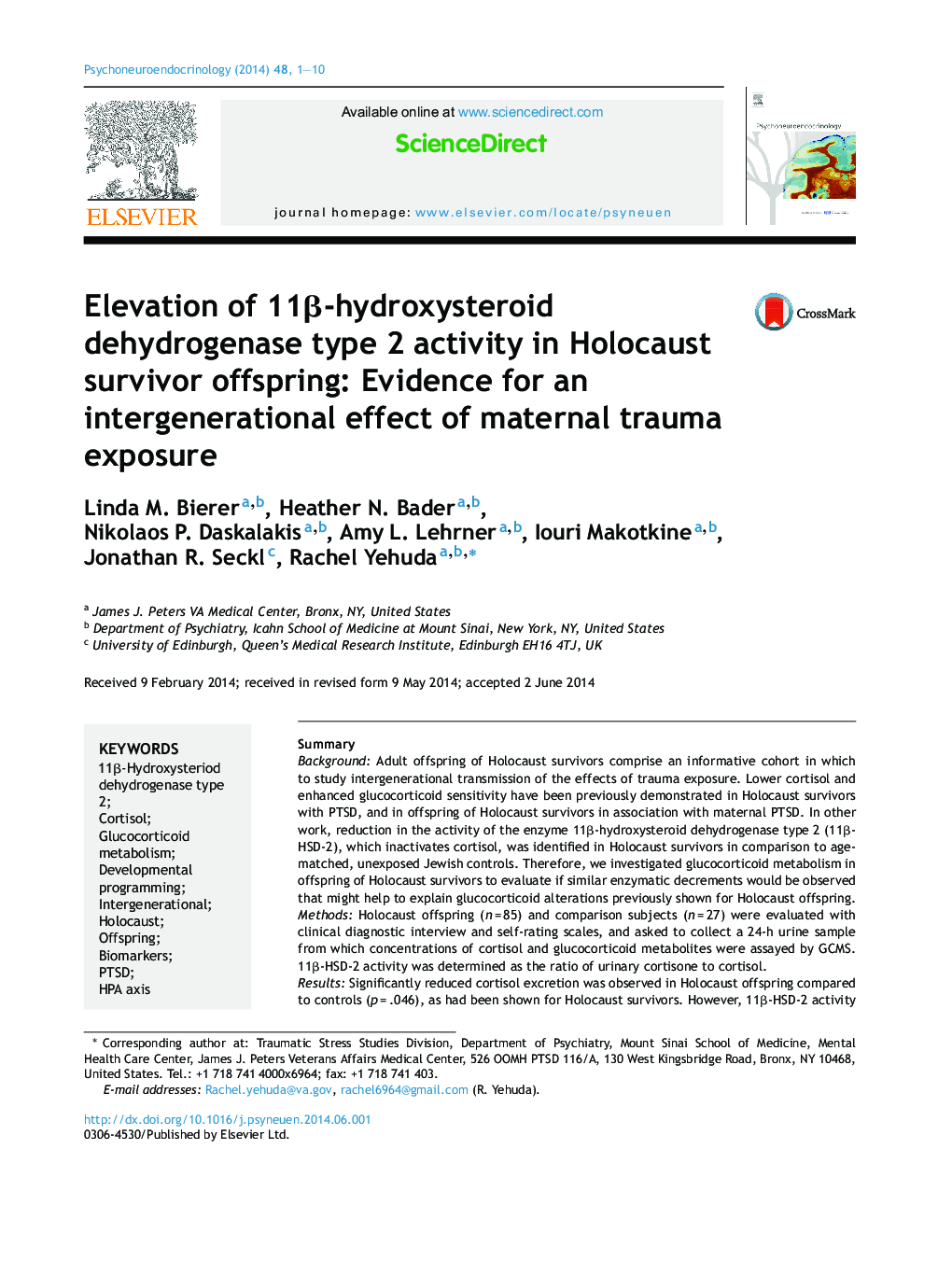| Article ID | Journal | Published Year | Pages | File Type |
|---|---|---|---|---|
| 336272 | Psychoneuroendocrinology | 2014 | 10 Pages |
SummaryBackgroundAdult offspring of Holocaust survivors comprise an informative cohort in which to study intergenerational transmission of the effects of trauma exposure. Lower cortisol and enhanced glucocorticoid sensitivity have been previously demonstrated in Holocaust survivors with PTSD, and in offspring of Holocaust survivors in association with maternal PTSD. In other work, reduction in the activity of the enzyme 11β-hydroxysteroid dehydrogenase type 2 (11β-HSD-2), which inactivates cortisol, was identified in Holocaust survivors in comparison to age-matched, unexposed Jewish controls. Therefore, we investigated glucocorticoid metabolism in offspring of Holocaust survivors to evaluate if similar enzymatic decrements would be observed that might help to explain glucocorticoid alterations previously shown for Holocaust offspring.MethodsHolocaust offspring (n = 85) and comparison subjects (n = 27) were evaluated with clinical diagnostic interview and self-rating scales, and asked to collect a 24-h urine sample from which concentrations of cortisol and glucocorticoid metabolites were assayed by GCMS. 11β-HSD-2 activity was determined as the ratio of urinary cortisone to cortisol.ResultsSignificantly reduced cortisol excretion was observed in Holocaust offspring compared to controls (p = .046), as had been shown for Holocaust survivors. However, 11β-HSD-2 activity was elevated for offspring compared to controls (p = .008), particularly among those whose mothers had been children, rather than adolescents or adults, during World War II (p = .032). The effect of paternal Holocaust exposure could not be reliably investigated in the current sample.ConclusionsThe inverse association of offspring 11β-HSD-2 activity with maternal age at Holocaust exposure is consistent with the influence of glucocorticoid programming. Whereas a long standing reduction in 11β-HSD-2 activity among survivors is readily interpreted in the context of Holocaust related deprivation, understanding the directional effect on offspring will require replication and further exploration.
